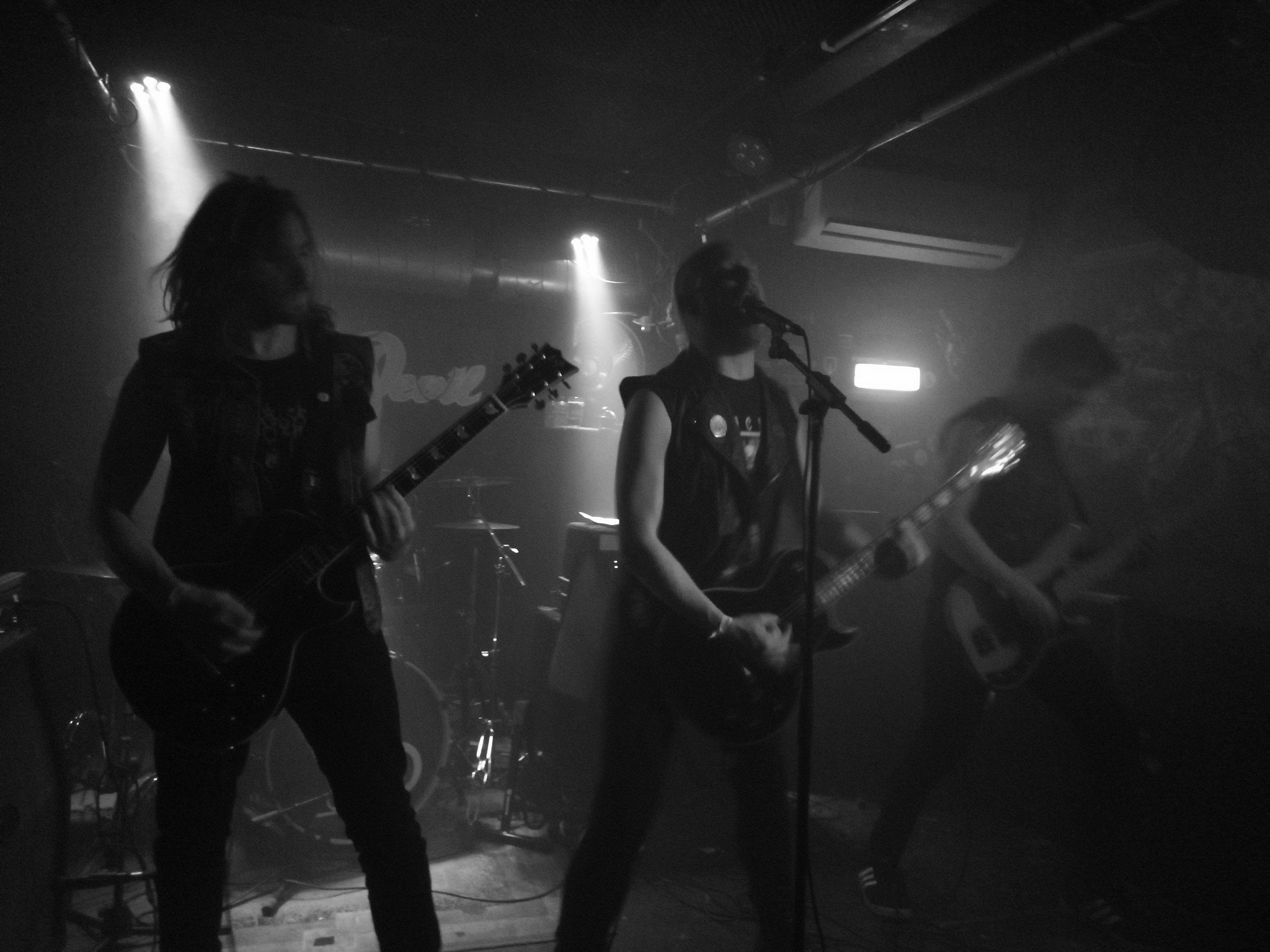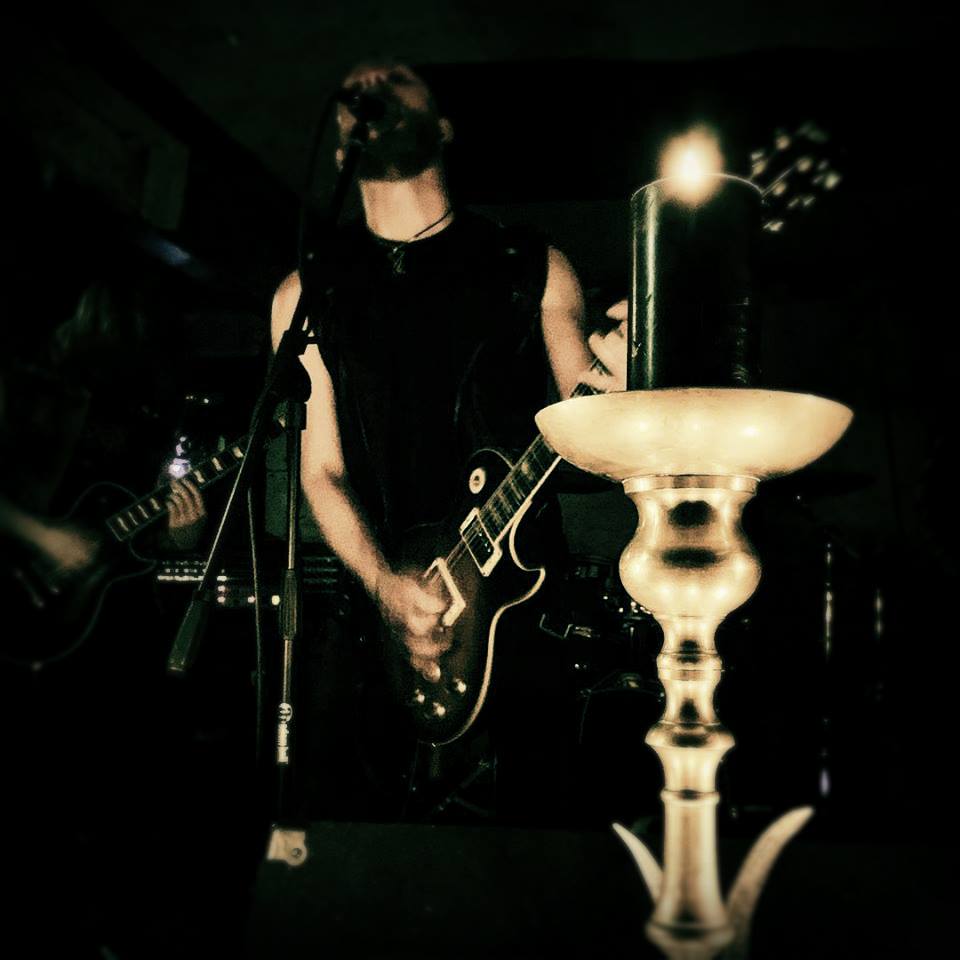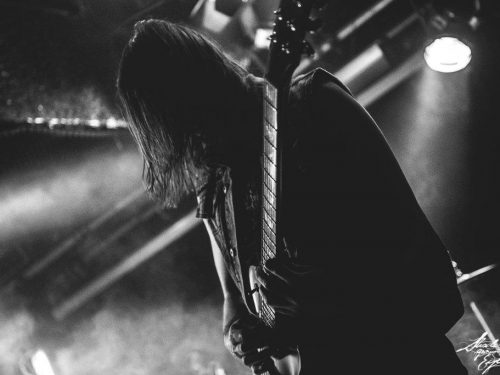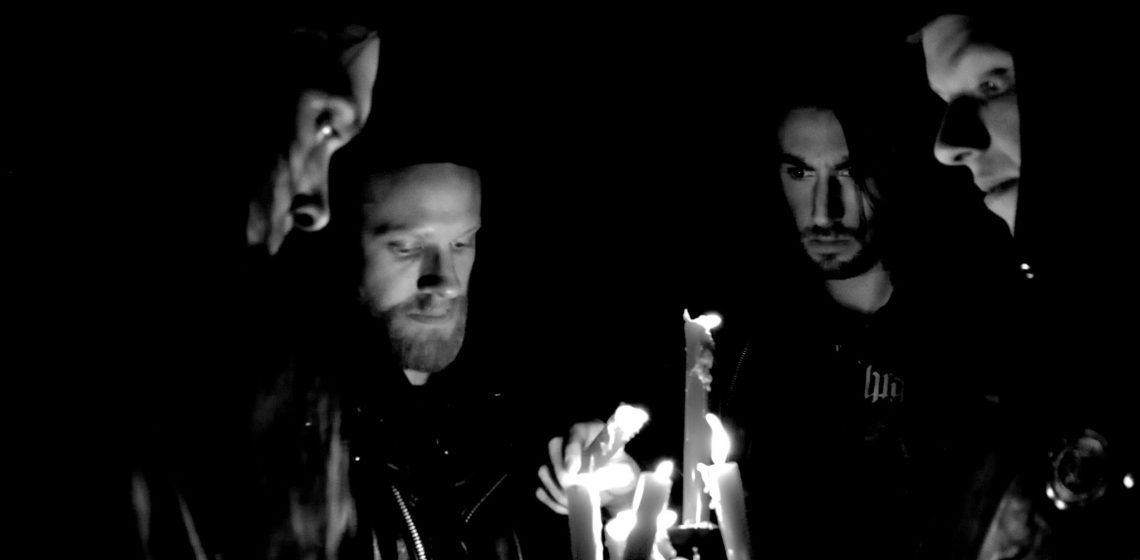GM: «Barshasketh is more than just music»
We continue to get acquainted with the band Barshasketh, which released its fourth self-titled album on the eve. The creativity of this band has caused me great interest. I offer you a fresh interview with the group. You can read their album review also. The questions of Temple of Death are answered by guitar player GM.
Greetings, Barshasketh. The band is founded in New Zealand but what made Krigeist move to Europe?
— The move to Europe was made for personal reasons, completely unrelated to Barshasketh, although obviously, it had a very positive impact on the band.
You have several logos of band. Why don’t you use only the one variant?
— We have accumulated a few different logos over the years, however, our main logo is the ambigram that was designed by our ex-bass player. We occasionally use the secondary logos when a particular graphic design demands it, simply in order to get the best result.

I watched your live performances and noticed that you don’t use corpsepaint and other Black Metal stuff. Why did you abandon from it?
— For some Black Metal artists, the idea of adopting the persona of an alter ego on stage is important; however, in our case this isn’t appropriate since there is continuity between what happens on and off the stage. Barshasketh is more than just music or something that we do part-time, it’s an integral part of our lives, for this reason I would rather show my own face than wear a mask.
Band members live in different cities or countries. How do you work on the material? Where do you rehearse?
— We almost never get the chance to rehearse together unfortunately since it’s so impractical for us. Each of us simply prepares the material individually and if we’re lucky, we will get one rehearsal before a show.
When it comes to working on new material, either myself or KG will come up with a draft for a song, which is then refined through a process of demoing over a period of a year or more. Sometimes we get some spare time at one of our rare rehearsals to jam new songs, but this is the exception rather than the rule and there are actually quite a few songs that we’ve never played through as a full band.

Who mainly composes the music in the band now? Or is it the result of a common effort?
— The two main songwriters are KG and myself, although every member of the band is a creative force and can make a major contribution to the arrangements.
Which bands influenced Barshasketh the most?
— The influence of the old masters such as Emperor, Dissection or Mayhem are still felt in our music and will most likely remain an integral part of our sound. That said, a number of more recent acts such as Ondskapt, Deathspell Omega, Thy Darkened Shade or Nightbringer have also had an important role in influencing the development of our style.
In a wider context, I’ve also been influenced by certain classical composers quite a bit- albeit in a more subtle way.
What inspires you to compose a Black Metal music?
— Oftentimes, the kernel of inspiration from which a composition stems arises completely spontaneously and pinpointing its origin can be rather difficult. I don’t claim to understand the process, which often feels more like channelling rather than active composition.
What is the purpose of Barshasketh now? Do you plan the concerts outside the Europe to promote the new album?
— The purpose of Barshasketh is as it has been since our inception – a vehicle through which we explore our spirituality. We currently have plans to perform in Mexico in the summer with the possibility of extension into further dates in the Americas.
Can you tell about your partnership with W.T.C. Productions? How did it begin? How much partnership with W.T.C. Productions contribute to your development? Are there things that label can limit you to?
— Actually the story behind how we got signed to W.T.C couldn’t be more banal- we simply sent away our previous album “Ophidian Henosis” to them in its finished form by email and they liked what they heard.
We’ve benefitted massively from our collaboration with them- due to their investment in our band we’ve had the means to produce our music exactly in the way that we envisage it. One of the best things about W.T.C is that they don’t interfere in the creative process at all, additionally; they are flexible when it comes to producing the physical CD or LP and are open minded about certain methods of fabrication that are maybe not the most cost-effective, but will represent the intention behind the music faithfully.

How was organized the recording of the album in Necromorbus Studio? Did you already imagine how the album should sound or did you rely on the experience of a sound engineer?
— Our S/T album was actually the third collaboration with Tore at Necromorbus Studio, so by that stage, he had a pretty good idea of what we like and don’t like when it comes to sound production. Each time we have worked with him we give clear instructions of what we are looking for, sometimes in forensic detail with certain specific parts, but we still allow him some room to experiment and he always finds a way of surprising us in the best way possible.
In general terms, we were aiming for a powerful sound, but we wanted to avoid over-polishing things to the point where the mix has 100% transparency. I personally enjoy records that take time to reveal all of their secrets, which demand careful, repeat listening to fully take in and this was something we wanted to achieve on our album.
How did you work on the cover and artworks for the new album? Are you satisfied with the end result?
— We had the privilege of working with two very talented artists; Artem Grigoryev, who took care of the cover art and the majority of the illustrations in the layout and our long-time co-conspirator, Fenomeno Design, who put together the layout, was in charge of the art direction and also contributed a few illustrations. We explained the concept in detail to both of the aforementioned and sent them the lyrics for them to read. We then had some discussions about how we could best represent the concept of the album with them after which they got to work on the artwork. The process was relatively lengthy, which is only natural since there are a lot of illustrations in the booklet- all of which contain a high level of detail.
Something that readers might not be aware of is that Fenomeno Design actually created the font for the layout from scratch using a real Roman wall as a reference. This was very time consuming for him, but the result is unique.
Overall we couldn’t be more satisfied with the result thanks to the stellar work of all involved. I think anyone who has a chance to see the DLP of the album with their own eyes will see for themselves the incredible level of artistry.
What role does occultism and mysticism play in your daily life?
— That would depend on your definition of occultism and mysticism. For us, this is something primarily explored through music, so in that sense, it is the centre of our daily lives.
What is Black Metal in your understanding? Which forms or styles of it are most important to you and which ones you do not accept?
— First and foremost, Black Metal is the expression of adversarial, Satanic ideas. Anything that fits within this framework is Black Metal. Anything that doesn’t isn’t.
What music except Black Metal do you prefer to listen?
— I listen to a lot of classical music, more specifically: early music and composers like Gesualdo or Guillaume de Machaut, Baroque composers like Rameau and the ubiquitous J.S. Bach, as well as some 20th century stuff like Messiaen, Scelsi, Berg, Nørgård, Takemitsu or Arvo Pärt.
Over the last few years, I’ve gotten more interested in dark ambient music. I enjoy artists such as Lustmord, Cities Last Broadcast, Raison D’être or Metatron Omega.
— What is on the other side remains to be seen. As for reincarnation, I can’t think of a worse fate than being reborn to this miserable sphere.
Have you ever been to Russia? Do you know any Black Metal bands from Russia or the post-soviet space?
— None of us have visited Russia yet unfortunately, although we would certainly be interested in doing so. Hopefully an opportunity to play there will present itself soon, if any promoters reading this are interested, they can contact us at barshasketh@live.com . My knowledge of the Russian Black Metal scene is perhaps not completely up to date, but I am familiar with a few acts like Lashblood, Pseudogod and SS-18 however.
Thanks for the interview and good luck in your path. Can you say a couple of final words for Temple of Death audience?
— Hail Satan.
The offical Facebook page of Barshasketh
Barshasketh’ Bandcamp
